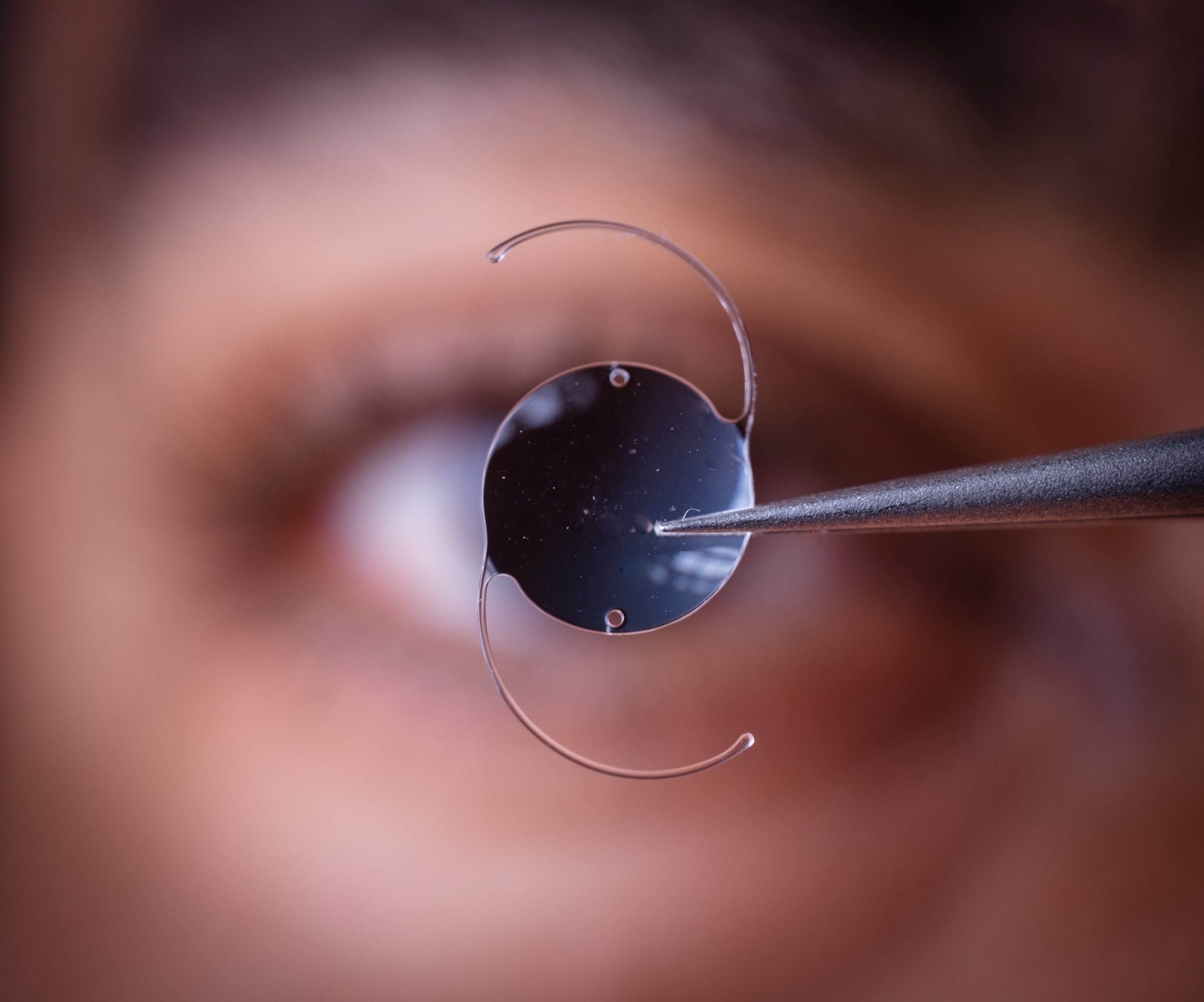Laser Eye Surgery of Erie
Why You Need A Lens Implant (IOL) With Cataract Surgery

Why You Need A Lens Implant (IOL) With Cataract Surgery
Understanding Cataract Surgery
Cataract surgery is a surgical procedure that involves removing the clouded natural lens in your eye. The clouded lens in your eye still has an “optical power” to help focus light. You need a replacement lens known as a lens implant (IOL) to replace the “optical power” of your eye. The lens implant (IOL) helps your eye focus. Your lens implant (IOL) serves as a permanent replacement of your eye’s natural, clouded lens.
What Is an Intraocular Lens (IOL)?
An intraocular lens (IOL) is a small, biocompatible artificial lens that is implanted into the eye during cataract surgery. The lens implants are usually made from acrylic plastic, but some are silicon or Polymethylmethacrylate (PMMA) material. IOLs come in various sizes and types. Each IOL is designed to address specific vision needs. The most common types of IOLs include:
Monofocal IOLs: Monofocal IOLs are designed to provide clear vision at a specific distance, usually for distance vision. If you choose a monofocal IOL you may still need glasses for tasks such as reading or close-up work.
Multifocal IOLs: Multifocal IOLs are engineered to provide clear vision at multiple distances, typically for both near and far vision. If you choose a multifocal IOL, you often experience a reduced dependence on glasses for everyday activities.
Toric IOLs: Toric IOLs are specifically designed to correct astigmatism in addition to correcting your vision. They can significantly improve both distance and astigmatic vision.
Why a Lens Implant Helps:
Improved Vision Clarity: Replacing your cataract-affected lens with an IOL, gives you the opportunity to restore clear vision.
Enhanced Quality of Life: Clear vision is essential for a high quality of life. Cataract surgery with the appropriate IOL can help you see the world with better clarity. This can make your daily activities like reading, driving, and recognizing faces easier and more enjoyable.
Reduced Dependency on Glasses: Depending on the type of IOL you choose, you can experience a significant reduction your dependence on eyeglasses or contact lenses. Multifocal and toric IOLs can provide you with excellent vision at various distances, reducing or eliminating the need for corrective eyewear.
Customized Solutions: IOLs can be tailored to your specific visual needs. We work closely with you to select the IOL that best matches your unique requirements, whether you need correction for nearsightedness, farsightedness, astigmatism, or a combination of these issues.
Long-Lasting Results: Once an IOL is implanted, it becomes a permanent part of your eye and provides clear vision for the long term. This means that the benefits of cataract surgery extend well beyond the immediate post-operative period.
Conclusion
Cataract surgery with a lens implant (IOL) is an amazing procedure that can significantly improve your vision and quality of life. It is essential to work closely with us to select the right IOL for your individual needs. With the right choice, you can enjoy the clarity of vision, reduced dependence on glasses, and an improved quality of life. However, some of the lens implants (IOL) are not covered by health insurance. You will need to pay out-of-pocket for certain types of lens implants (IOLs). We can help you select the type of lens implant that suits both your needs and budget.
https://www.aao.org/eye-health/diseases/cataracts-iol-implants
https://www.erielasereye.com/our-services/cataract-surgery-with-dr-haverly/

